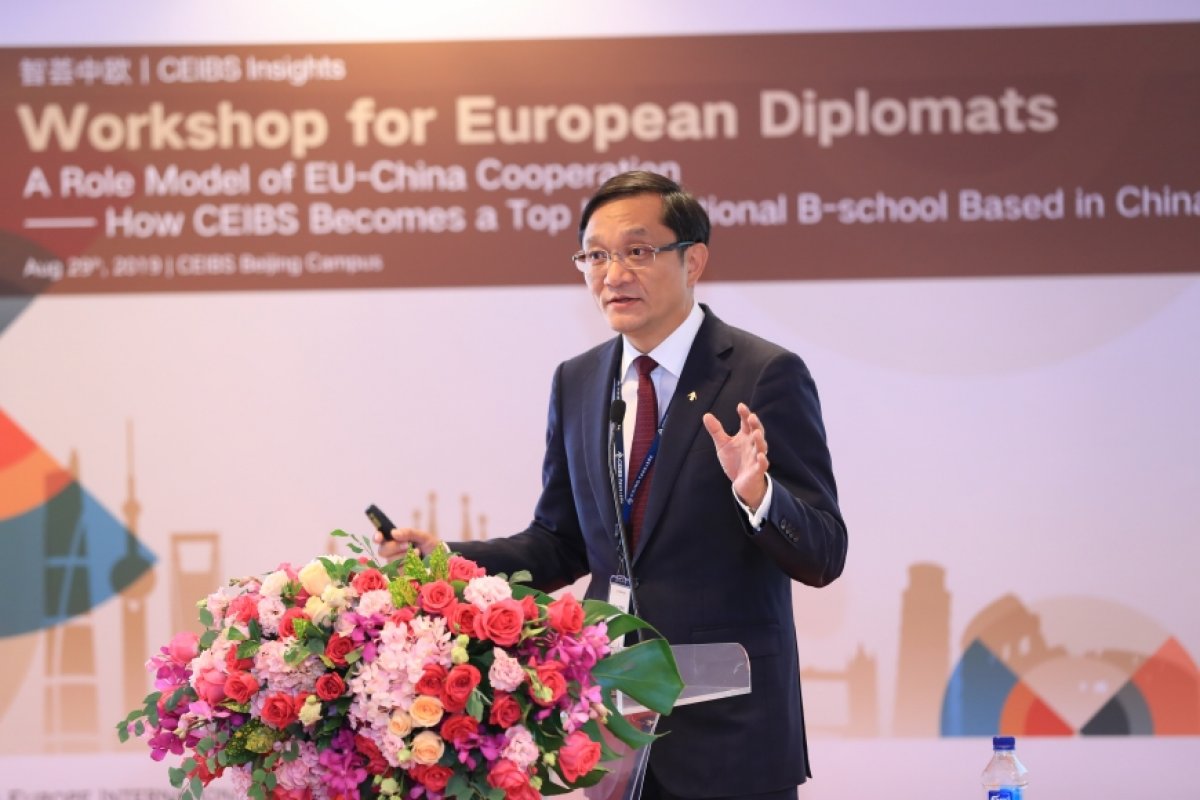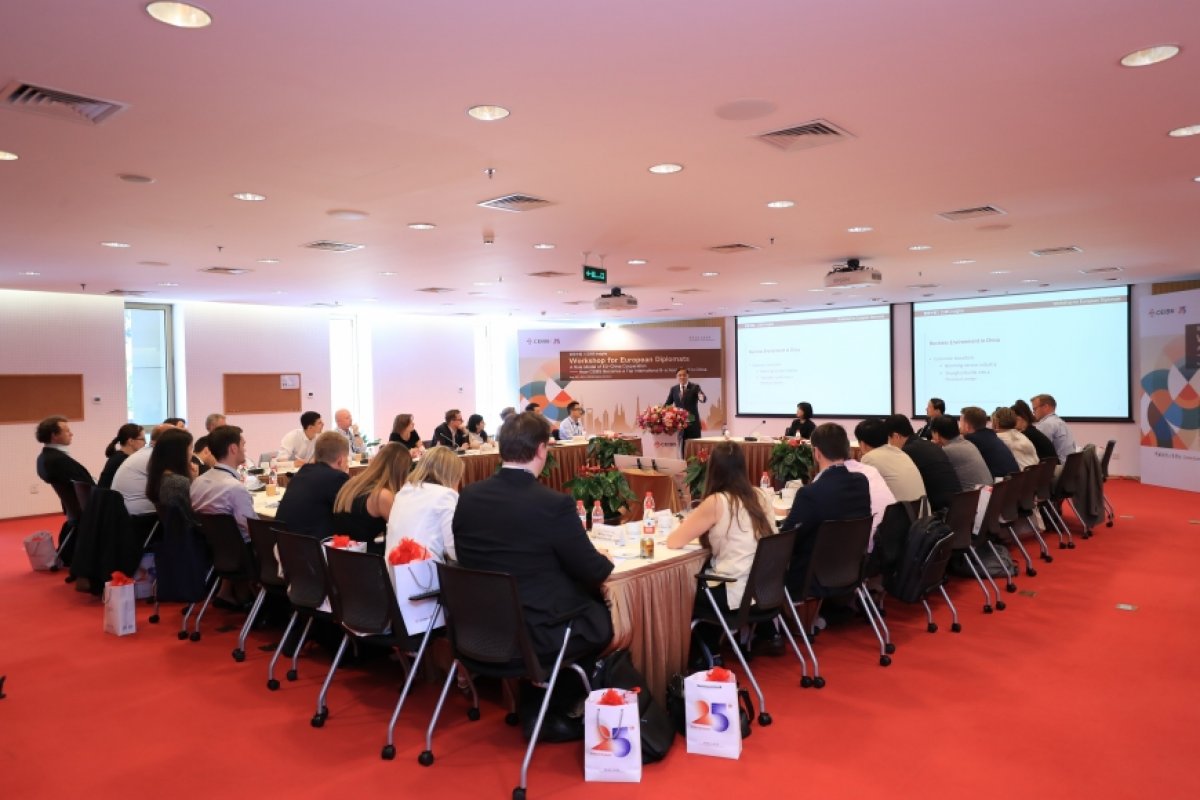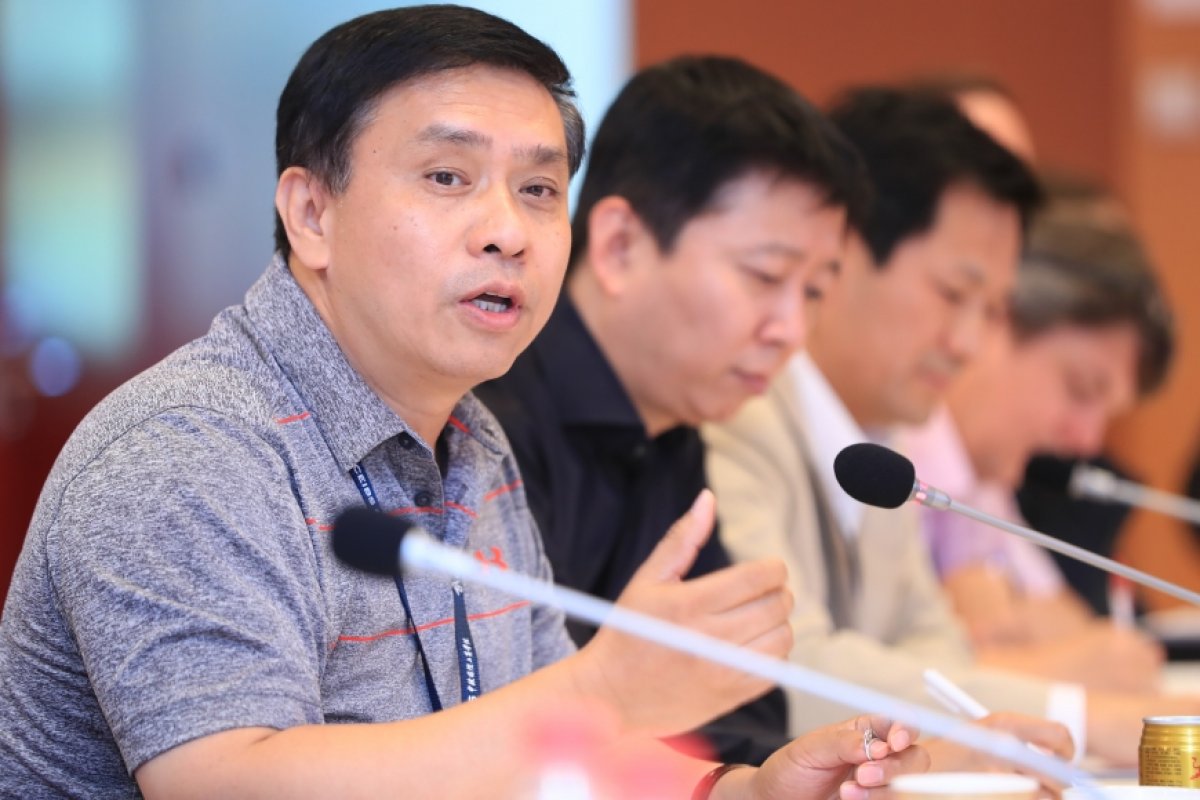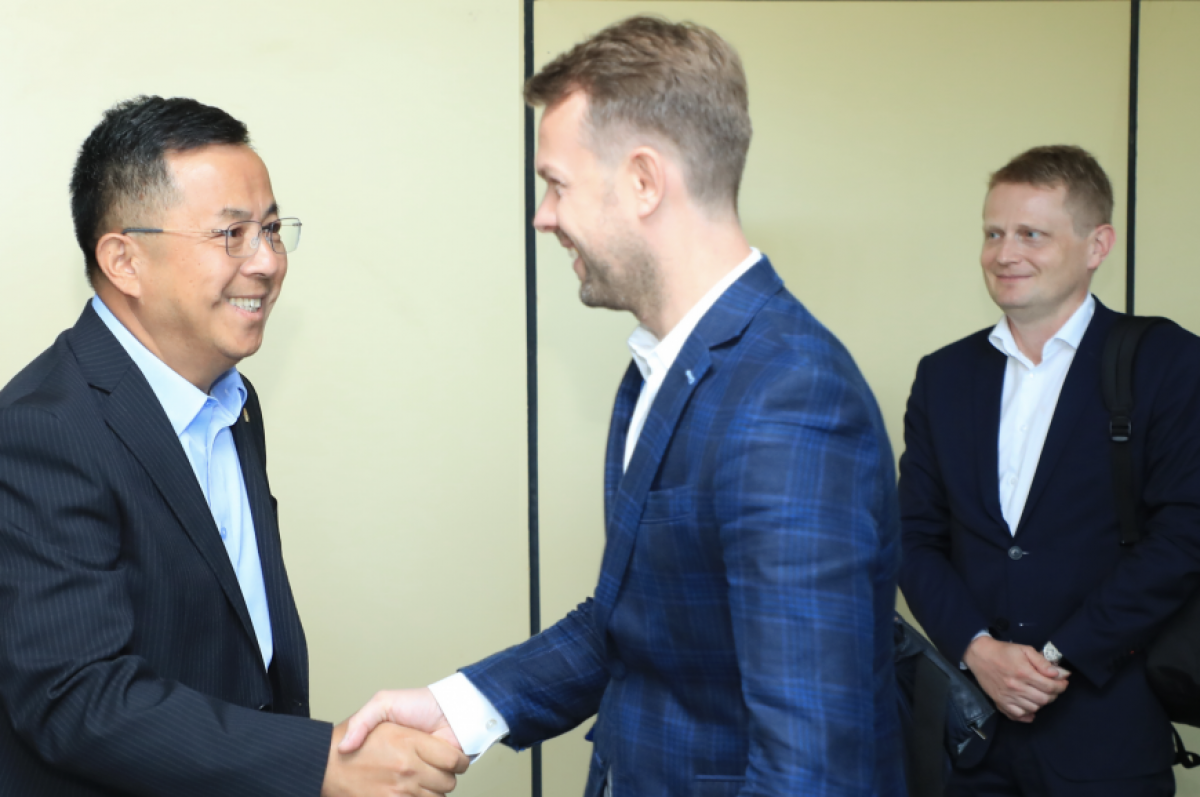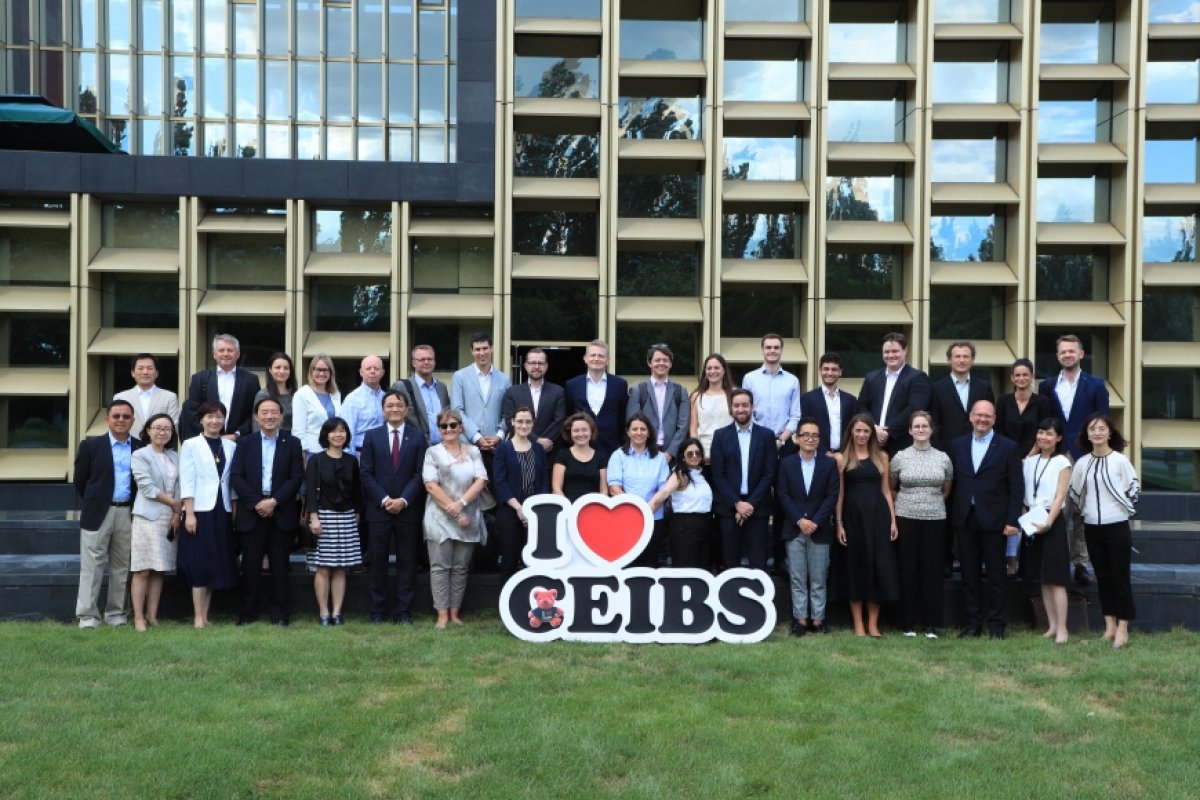CEIBS Workshop Offers Insights for European Diplomats
August 29, 2019. Beijing – On the afternoon of August 29, the nearly 30 participants of the 14th Workshop for European Diplomats, led by Counsellor Lin Hang from the Department of European Affairs, Ministry of Foreign Affairs (MFA), paid a visit to CEIBS Beijing Campus. CEIBS Vice President and Dean Ding Yuan attended the workshop and delivered a keynote speech. Assistant President and Chief Representative of the Beijing Campus Mr. Ma Yusheng then accompanied the participants on a campus tour. Senior Consultant of the Dean’s Office and Director of CEIBS Education Foundation Mr. Xu Bo and a number of CEIBS alumni also attended the event, exchanging insights with 27 diplomats from European countries including Germany, Italy, France, the Netherlands, Romania and Finland.
CEIBS Vice President Ding Yuan addressed the workshop and introduced the development of the school in his speech, “A Role Model of EU-China Cooperation — How CEIBS Became a Top International B-School Based in China”. In his speech, he pointed out that CEIBS has since its beginnings benefited from China’s opening-up and has adapted its development strategy to market demands and changes in domestic and international economic climates over the years. For 25 years, CEIBS has been committed to pursuing academic excellence and educating responsible business leaders with global vision. The school now runs 5 campuses around the world, boasts a network of more than 22,000 alumni from over 80 countries, and has provided executive education for over 160,000 executives at home and abroad. It is the only business school in Asia to have simultaneously made it to the Financial Times’ top 5 list of MBA and EMBA programmes. Leaders from the Chinese government and the EU have respectively lauded CEIBS as “a cradle of excellent executives” and “a role model of EU-China cooperation”.
Professor Ding further noted that the success of CEIBS should be attributed to the continuous rapid development of China’s economy, the expanding demand for business education and international talents, the school’s exceptional faculty and, most importantly, to the long-term close collaboration between the Chinese government and the European Commission.
Diplomats paid special attention to China’s business education and to the development of Chinese companies and the economy. Discussion topics ranged from CEIBS’s programme curriculum, 5-campus operations strategy and cohesion of its alumni network to China’s economic transformation, SOE reform and economic trends. According to Professor Ding, CEIBS has adopted a culture that “stresses the interaction between teaching and research and centres on students and alumni”. CEIBS will continue to absorb the essence from domestic management practices and business models to provide intellectual support for China’s economic transformation. It will serve as a bridge between China and Europe, and even the whole world, by contributing world-class original research results and facilitating economic and cultural exchanges and cooperation.







